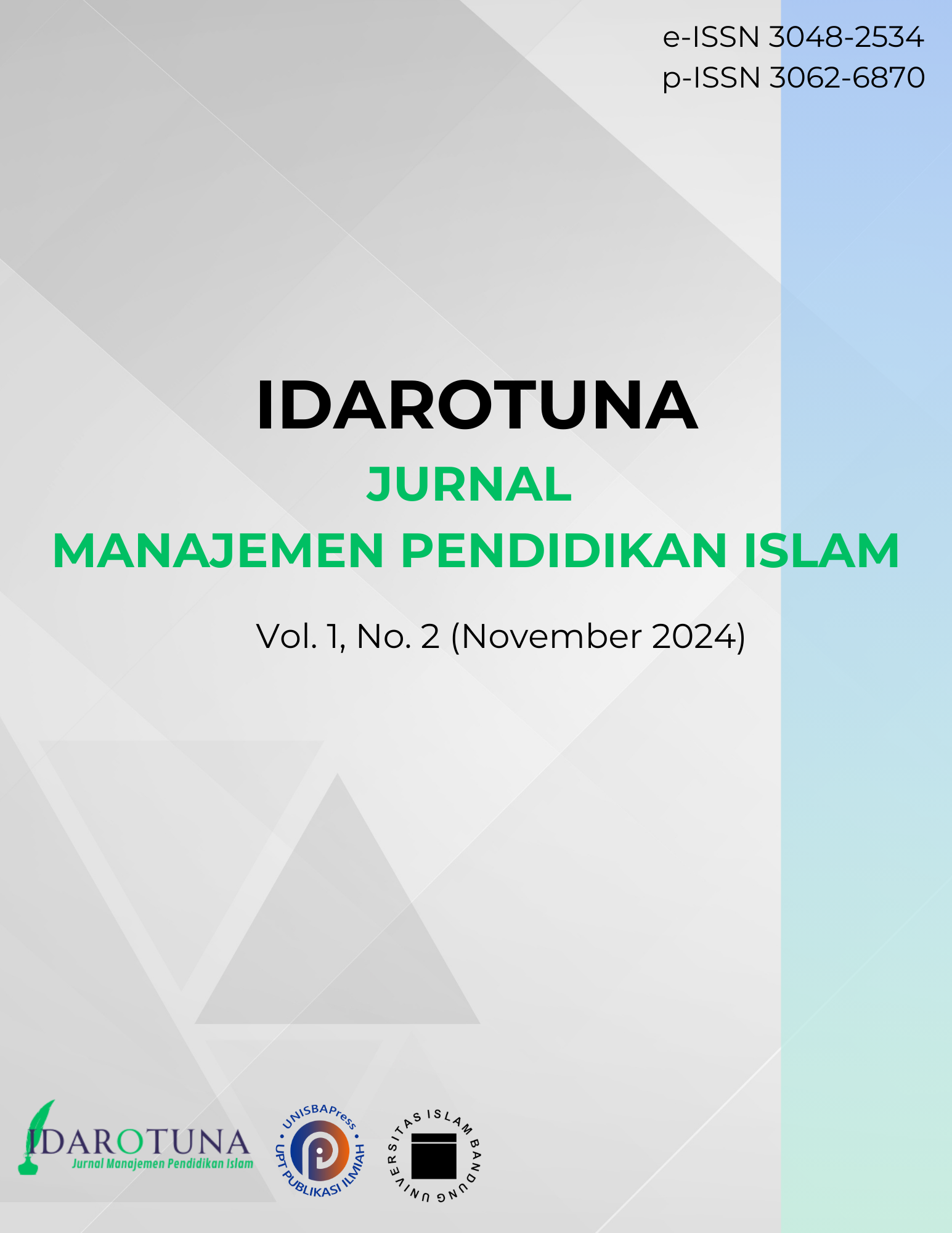Integrasi Nilai-Nilai Filsafat Islam dalam Kurikulum Pendidikan Kontemporer
DOI:
https://doi.org/10.29313/idarotuna.v1i2.5870Keywords:
Islamic Philosophy, Contemporary Education, Islamic Values, Curriculum, Spiritual IntegrationAbstract
Contemporary education faces challenges from globalization, secularism, and the fragmentation of knowledge, which often neglect the spiritual and moral dimensions. This has led to an identity crisis among Muslim youth. Islamic philosophy, with its core values such as hikmah (wisdom), tauhid (the oneness of Allah), and adab (morality), offers a holistic framework for integrating spiritual and moral dimensions into education. This journal aims to analyze the relevance of Islamic philosophical values in addressing the challenges of modern education and provides concrete recommendations for integrating these values into educational curricula. Employing a qualitative approach through literature analysis, this journal finds that Islamic philosophy offers a robust foundation for an educational system that not only produces intellectually intelligent individuals but also those who are morally grounded and possess an Islamic character. The integration of these values can be realized through a curriculum design based on tauhid, the development of wisdom-based learning, and the inculcation of adab as a core competency. The findings of this journal are expected to contribute significantly to building an educational system that remains relevant to the challenges of the modern era while preserving the essence of spirituality and morality, which lie at the heart of Islamic philosophy.
Downloads
Published
How to Cite
Issue
Section
License
Copyright (c) 2024 Isnan Rojibillah, Adang Hambali

This work is licensed under a Creative Commons Attribution-NonCommercial-ShareAlike 4.0 International License.









